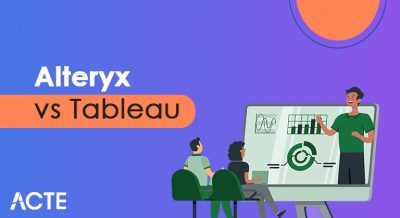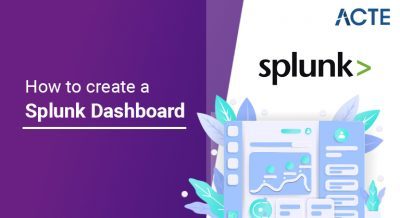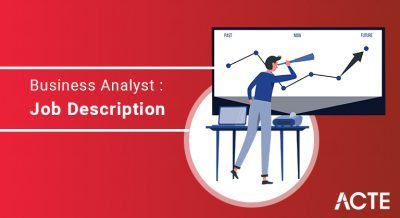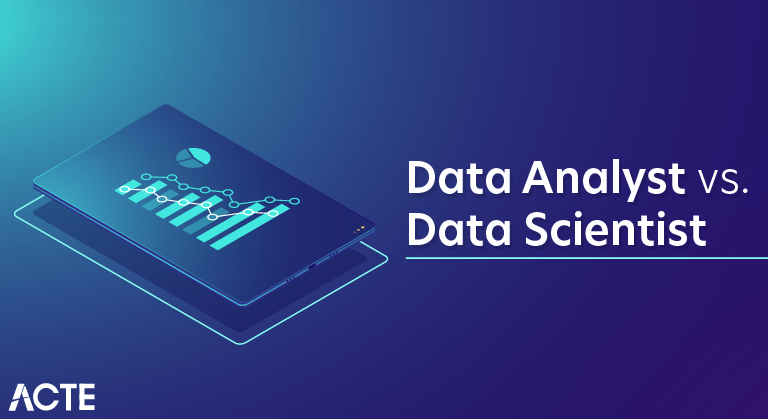
What Does a Data Analyst Do?
Data analysts sift through data and provide reports and visualizations to explain what insights the data is hiding. When somebody helps people from across the company understand specific queries with charts, they are filling the data analyst role. In some ways, you can think of them as junior data scientists, or the first step on the way to a data science job.
What Does a Data Scientist Do?
At its core, a data scientist’s job is to collect and analyze data, garner actionable insights, and share those insights with their company.
“Doing Data Science,” a book based on Columbia University’s Introduction to Data Science class, describes a data scientist as someone who “spends a lot of time in the process of collecting, cleaning, and munging data, because data is never clean.”
The book goes on to explain that once the data is clean, “a crucial part is exploratory data analysis, which combines visualization and data sense. She’ll find patterns, build models, and algorithms—some with the intention of understanding product usage and the overall health of the product, and others to serve as prototypes that ultimately get baked back into the product. She may design experiments, and she is a critical part of data-driven decision making. She’ll communicate with team members, engineers, and leadership.”
So, not only must a data scientist know how to collect and clean data, but they must also know how to build algorithms, find patterns, design experiments, and share the results of the data with team members in an easily digestible format.
Data Scientist vs. Data Analyst: Role Requirements
What Are the Requirements for a Data Analyst?
A typical data analyst job description requires the applicant to have an undergraduate STEM (science, technology, engineering, or math) degree. An advanced degree is a “nice to have,” but is not required. However, the applicant must also have strong skills in math, science, programming, databases, modeling, and predictive analytics. To get an understanding of the role requirements for a data analyst, we looked at job postings on Glassdoor.
At their core, most required:
- Degree in mathematics, statistics, or business, with an analytics focus
- Experience working with languages such as SQL/CQL, R, Python
- A strong combination of analytical skills, intellectual curiosity, and reporting acumen
- A solid understanding of data mining techniques, emerging technologies (MapReduce, Spark, large-scale data frameworks, machine learning, neural networks) and a proactive approach, with an ability to manage multiple priorities simultaneously
- Familiarity with agile development methodology
- Exceptional facility with Excel and Office
- Strong written and verbal communication skills
What Are the Role Requirements for a Data Scientist?
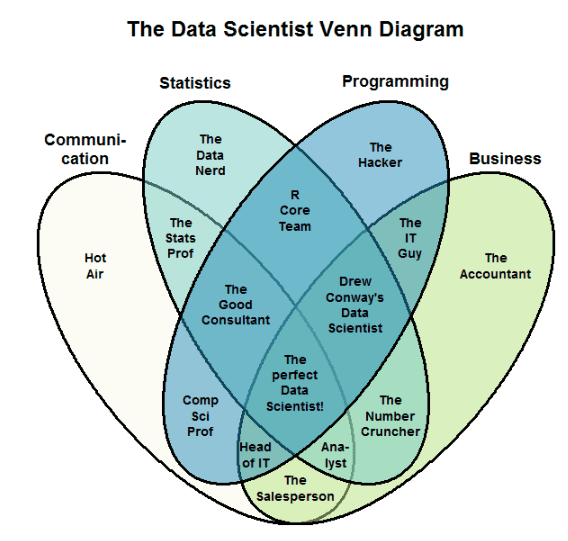
It should come as no surprise that in order to be a data scientist, you need to be well-educated. We mentioned that the majority of data scientists have advanced degrees; in actuality, it’s nearly 90 percent! Industry resource KDnuggets found that 88 percent of data scientists hold a master’s degree and 46 percent have a Ph.D. The most common degrees are in mathematics and statistics (32 percent), followed by computer science (19 percent) and engineering (16 percent).
According to Martin Schedlbauer, associate clinical professor and director of Northeastern University’s information, data science, and data analytics programs, “Data scientists are quite different from data analysts; they’re much more technical and mathematical. They’ll have more of a background in computer science, and most businesses want an advanced degree.”
Glassdoor recommends the following qualifications for a data scientist:
- Master’s or Ph.D. in statistics, mathematics, or computer science
- Experience using statistical computer languages such as R, Python, SQL, etc.
- Experience in statistical and data mining techniques, including generalized linear model/regression, random forest, boosting, trees, text mining, social network analysis
- Experience working with and creating data architectures
- Knowledge of machine learning techniques such as clustering, decision tree learning, and artificial neural networks
- Knowledge of advanced statistical techniques and concepts, including regression, properties of distributions, and statistical tests
- 5-7 years of experience manipulating data sets and building statistical models
- Experience using web services: Redshift, S3, Spark, DigitalOcean, etc.
- Experience analyzing data from third-party providers, including Google Analytics, Site Catalyst, Coremetrics, AdWords, Crimson Hexagon, Facebook Insights, etc.
- Experience with distributed data/computing tools: Map/Reduce, Hadoop, Hive, Spark, Gurobi, MySQL, etc.
- Experience visualizing/presenting data for stakeholders using: Periscope, Business Objects, D3, ggplot, etc.
In addition to understanding data, a data scientist must be comfortable presenting their findings to company stakeholders. Finding someone skilled in mathematics and coding who is also adept at presenting and explaining their discoveries in layman’s terms isn’t an easy task, which is why “data scientist” is such a lucrative position.
Data Analysts vs Data Scientists
| DATA ANALYST SKILLS | DATA SCIENTIST SKILLS |
|---|---|
| Data Mining | Data Mining |
| Data Warehousing | Data Warehousing |
| Math, Statistics | Math, Statistics, Computer Science |
| Tableau and Data Visualization | Tableau and Data Visualization/Storytelling |
| SQL | Python, R, JAVA, Scala, SQL, Matlab, Pig |
| Business Intelligence | Economics |
| SAS | Big Data |
| Advanced Excel skills | Machine Learning |
Choosing Between a Data Analytics and Data Science Career
Once you have a firm understanding of the differences between data analytics and data science—and can identify what each career entails—you can start evaluating which path is the right fit for you. To determine which path is best aligned with your personal and professional goals, you should consider three key factors:
- Your educational and professional background
- Your personal interests
- Your desired career trajectory
1. Consider Your Personal Background
While data analysts and data scientists are similar in many ways, their differences are rooted in their professional and educational backgrounds, says Martin Schedlbauer, associate teaching professor and director of the information, data science and data analytics programs within Northeastern University’s Khoury College of Computer Sciences, including the Master of Science in Computer Science and Master of Science in Data Science.
As mentioned above, data analysts examine large data sets to identify trends, develop charts, and create visual presentations to help businesses make more strategic decisions. To align their education with these tasks, analysts typically pursue an undergraduate degree in a science, technology, engineering, or math (STEM) major, and sometimes even an advanced degree. They also seek out experience in math, science, programming, databases, modeling, and predictive analytics.
Data scientists, on the other hand, are more focused on designing and constructing new processes for data modeling and production. In addition, because they use a variety of techniques to comb through data—including data mining and machine learning—an advanced degree, such as a master’s or PhD, is essential for professional advancement, according to Schedlbauer.
“Data scientists are…much more technical and mathematical [than data analysts],” he says, explaining that this requires them to have “more of a background in computer science,” as well.
When considering which career path is right for you, it’s important to review these educational requirements. If you have already made the decision to invest in your career with an advanced degree, you will likely have the educational and experiential background to pursue either path. On the other hand, if you’re still in the process of deciding if going back to school is right for you, you may be more inclined to stick with a data analytics role, as employers are more likely to consider candidates without a master’s degree for these positions.
No matter which path you choose, thinking through your current and desired amount of education and experience should help you narrow down your options.
2. Consider Your Interests
Are you excited by numbers and statistics, or do your passions extend into computer science and business?
Data analysts love numbers, statistics, and programming. As the gatekeepers for their organization’s data, they work almost exclusively in databases to uncover data points from complex and often disparate sources. Data analysts should also have a comprehensive understanding of the industry they work in, Schedlbauer says. If this sounds like you, then a data analytics role may be the best professional fit for your interests.
Data scientists are required to have a blend of math, statistics, and computer science, as well as an interest in—and knowledge of—the business world. If this description better aligns with your background and experience, perhaps a role as a data scientist is the right pick for you.
Either way, understanding which career matches your personal interests will help you get a better idea of the kind of work that you’ll enjoy and likely excel at. Be sure to take the time and think through this part of the equation, as aligning your work with your interests can go a long way in keeping you satisfied in your career for years to come.
Which Is Right for You?
Data analysts and data scientists have job titles that are deceptively similar given the many differences in role responsibilities, educational requirements, and career trajectory.
No matter how you look at it, however, Schedlbauer explains that qualified individuals for data-focused careers are highly coveted in today’s job market, thanks to businesses’ strong need to make sense of—and capitalize on—their data.
Once you have considered factors like your background, personal interests, and desired salary, you can decide which career is the right fit for you and get started on your path to success.

